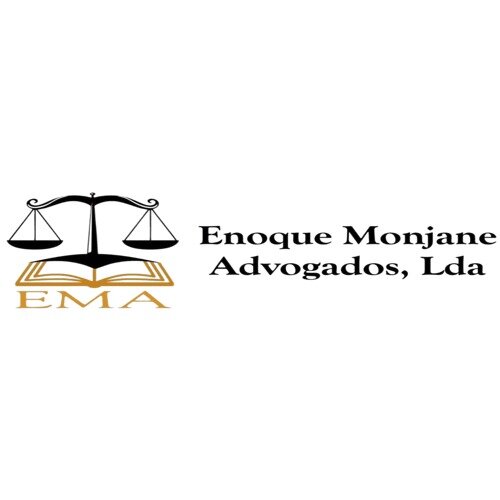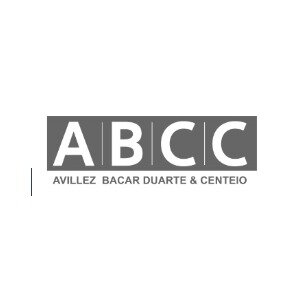Best Climate Change Law Lawyers in Mozambique
Share your needs with us, get contacted by law firms.
Free. Takes 2 min.
Or refine your search by selecting a city:
List of the best lawyers in Mozambique
About Climate Change Law in Mozambique
Climate Change Law in Mozambique refers to a growing body of legislation, policies, and international commitments aimed at mitigating and adapting to the effects of climate change. Mozambique, as a climate-vulnerable country, has integrated environmental protection and sustainable development into its legal framework. The legal approach combines the regulation of greenhouse gas emissions, sustainable land use, management of natural resources, and disaster risk reduction, largely aligned with global conventions such as the United Nations Framework Convention on Climate Change (UNFCCC) and the Paris Agreement.
Why You May Need a Lawyer
Engaging a lawyer experienced in Climate Change Law can be crucial due to the complex, evolving nature of the regulations and policies in Mozambique. You may require legal advice or representation in several circumstances, including:
- Navigating compliance with national climate-related regulations for businesses and organizations
- Developing and implementing renewable energy projects or sustainable agriculture initiatives
- Assessing liability and responsibilities in the case of environmental harm resulting from corporate or individual actions
- Understanding international climate finance mechanisms and opportunities
- Participating in carbon trading or offset projects
- Handling disputes or negotiations related to land use, water management, or emission reductions
- Ensuring community rights are respected in climate adaptation or mitigation projects
- Protecting local or indigenous community interests affected by climate change policies or projects
Local Laws Overview
Mozambique’s legal framework contains a number of laws and policies highly relevant to climate change:
- The Constitution of Mozambique enshrines the right to a balanced environment and mandates the state to adopt policies for environmental protection.
- The Environmental Law (Law No. 20/97) serves as the foundational legislation on environmental management and outlines the principles for protecting natural resources.
- The National Climate Change Adaptation and Mitigation Strategy (NCCAMS) provides a framework for addressing climate risks across sectors like agriculture, coastal management, transportation, and energy.
- Regulations on Environmental Impact Assessment require thorough examination of major projects in terms of their environmental and climate effects.
- Mozambique ratified the Paris Agreement, committing to Nationally Determined Contributions (NDCs) in order to reduce greenhouse gas emissions and enhance resilience.
- Legislation related to land use, forestry, and water management (such as the Forest and Wildlife Law, and the Water Law) integrates climate adaptation and conservation principles.
- The Disaster Risk Management Law provides legal grounding for responding to and planning for climate-related disasters.
The legal environment is continuously adapting to new challenges, meaning businesses, organizations, and individuals need to stay informed of the latest requirements and best practices.
Frequently Asked Questions
What is Climate Change Law?
Climate Change Law is the branch of law dealing with measures to mitigate climate change by reducing emissions and adapt to its effects through environmental protection policies and sustainable development.
Who is affected by Mozambique’s Climate Change Laws?
Businesses, government bodies, NGOs, project developers, investors, and individuals can all be affected, especially those involved in industries like energy, agriculture, transportation, and construction.
What are the penalties for violating environmental or climate change regulations?
Penalties may include fines, suspension of licenses or permits, remediation orders, and in severe cases, criminal prosecution depending on the extent and severity of the violation.
How do I ensure my project complies with national and international climate obligations?
Seek professional legal advice to review your project for compliance with Mozambique’s Environmental Law, applicable regulations, and international agreements. An environmental impact assessment is often required.
Are there any incentives for adopting renewable energy or sustainable practices?
Yes. Mozambique has policies promoting renewable energy investments, and there may be opportunities for funding, tax exemptions, or technical support, especially for projects aligned with national climate goals.
Can communities challenge projects that may harm their environment or livelihoods?
Yes. Community members and NGOs have legal standing to challenge potentially harmful projects under the Environmental Law and may participate in public hearings during the licensing process.
How does Mozambique address adaptation to climate change?
Through the National Climate Change Adaptation and Mitigation Strategy and Disaster Risk Management Law, Mozambique encourages resilient infrastructure, sustainable land management, and community-based adaptation measures.
What role do international treaties play in Mozambique’s climate legislation?
International treaties like the Paris Agreement guide Mozambique’s national commitments and are integrated into local laws and strategies for mitigating and adapting to climate change.
How are carbon credits and climate finance regulated?
Mozambique has created regulatory frameworks to facilitate participation in carbon markets and climate finance schemes, often aligning with international standards and supervised by relevant government authorities.
What should I do if I am impacted by the consequences of another party’s failure to comply with climate change law?
You should consult a lawyer who specializes in Climate Change Law to discuss your rights, potential claims, and available remedies through administrative, civil, or even criminal procedures if relevant.
Additional Resources
If you need reliable information or assistance, consider reaching out to:
- The Ministry of Land and Environment (Ministério da Terra e Ambiente) - the principal governmental body responsible for environment and climate policy
- The National Council for Sustainable Development (CONDES) - an advisory body on environmental and climate policy
- The National Disaster Management Institute (INGC) - for legal matters related to climate adaptation and disaster response
- Local environmental law firms or legal aid organizations specializing in environmental and climate change law
- NGOs such as the Centro Terra Viva, which provides advocacy and legal support on environmental matters
Next Steps
If you require legal assistance regarding Climate Change Law in Mozambique, start by identifying the specific issue you are facing. Gather any related documents, agreements, or evidence. Consider consulting a specialized law firm or legal expert with experience in environmental or climate regulations. You may also seek guidance from governmental agencies or reputable NGOs. Early legal consultation can help you understand your rights, ensure compliance, and develop strategies to manage risks or resolve disputes effectively.
Remember, climate change law is a developing and complex area. Staying informed and proactive is essential to navigating your legal responsibilities and opportunities in Mozambique.
Lawzana helps you find the best lawyers and law firms in Mozambique through a curated and pre-screened list of qualified legal professionals. Our platform offers rankings and detailed profiles of attorneys and law firms, allowing you to compare based on practice areas, including Climate Change Law, experience, and client feedback.
Each profile includes a description of the firm's areas of practice, client reviews, team members and partners, year of establishment, spoken languages, office locations, contact information, social media presence, and any published articles or resources. Most firms on our platform speak English and are experienced in both local and international legal matters.
Get a quote from top-rated law firms in Mozambique — quickly, securely, and without unnecessary hassle.
Disclaimer:
The information provided on this page is for general informational purposes only and does not constitute legal advice. While we strive to ensure the accuracy and relevance of the content, legal information may change over time, and interpretations of the law can vary. You should always consult with a qualified legal professional for advice specific to your situation.
We disclaim all liability for actions taken or not taken based on the content of this page. If you believe any information is incorrect or outdated, please contact us, and we will review and update it where appropriate.
Browse climate change law law firms by city in Mozambique
Refine your search by selecting a city.
















